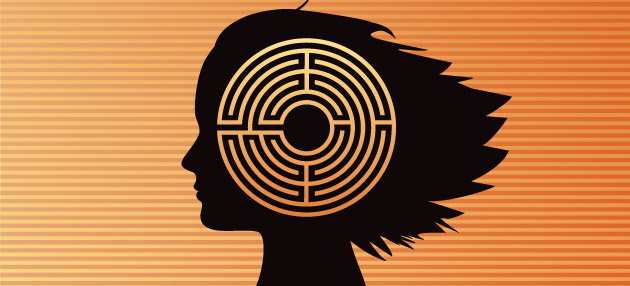‘Social Parenting’ should turn into a movement

Noted psychiatrist Dr. Anand Nadkarni was interviewed online by Uttamkumar Indore and Mukta Shingte on 26th July 2021. It was Miloon Saryajani’s first step towards ‘Social Parenting’. The interview was transcribed by Anuja Bendkhale and was published in the Diwali 2021 issue of Miloon Saryajani. Priyamvada Gambhir has translated it in English for MISA Online.
During our evolutionary journey, the idea of ‘social parenting’ appeared first. ‘Personal parenting’ came at a later stage. We can look at the idea of social parenting in two ways. One is society’s complete participation in the upbringing of a child and second is the parenting which would instil social awareness in the children as well.
To yearn for a strong, empowered generation, to extend our presence beyond survival is a part of human’s biological existential desires. Social parenting has borne out of this inspiration. That’s why, even today we are ‘social parents’ just as we are ‘personal parents’ – parents to our biological children. It is being felt that parenting should be able to give children a sense of social responsibility. Because we see that the youth in their twenties getting ‘self-aware’. In this generation, the journey towards self-centeredness is much faster than the previous generation. That’s why it is necessary to educate these youngsters about issues of social interest along with self-interest. We give our children all the facilities for education and personality development. At the same time, these children should be given an opportunity to observe the society, to interact with the people from different strata, to connect with them and even to communicate with global society. Significance of different cultures and sociality should be checked. It will help them going away from self-centeredness and reach to equanimity. In equanimity, there is interdependence where family and society become one. We should ascertain that this is how an individual develops. In any age group, this type of societal consciousness should be developed.
Among all this, the important thing is to avoid polarization of thoughts. Sometimes children from the early age listen to the thoughts which are conducive to polarization. They may be political or social. Social scientists observe that these types of thoughts do prevail post pandemic. During post pandemic period social polarization increases. Children should grow in such a way that they should be able to maintain balance from such polarization.
To some extent, we imbibe self-centeredness through personal parenting. If we keep offering the consumerist lifestyle to our children, we will move away from social parenting. Consumerism brings a lot of compulsions in its wake. It results in excessive competition and two classes are born – ‘haves’ and ‘have nots’. The classes are further divided into ‘upper’ and ‘lower’. That’s why while parenting; parents should check their definitions of ‘needs’, ‘facilities’ and ‘luxuries’. We must think about what exactly are the ‘needs’ to us, what are the ‘facilities’ and ‘luxuries’ to us. The definition of children and parents will defer. So, we have to think about the difference and check if we can strike a balance. This could be personal parenting’s first step towards social parenting.
Is it true that to some extent parents’ neglect is responsible for creating anti-social elements like thieves and goons? The answer is complex. It is not scientifically proven that there is only one single factor that works towards the development of human personality. If we think about the factors at work behind some people’s antisocial activities, we will realise that there is social atmosphere – ‘culture’ – behind it. Along with it, the person’s ‘nurture’ will also play a role there. Then there will be ‘nature’ which is genetic. We see that two goons in the same profession can be different. Let’s call it ‘signature’. So, nature, nurture, culture and signature are the four factors responsible in the development of every individual.
The important thing is that many a times culture or social atmosphere affects the creativity of society. A book titled ‘Geography of Genius’ is worth reading in this context.
Culture means sociality. With the creation of personalities that influence the society, the future of the society changes. It may lead to good or bad, anything. In olden days people used to sleep just by spreading mattresses side by side. There was no difference between personal space and common space. But today, each person has separate bedroom. So why would the children come out of their comfort zone? They would come out only if we could make their departure from comfort zone meaningful, attractive. What can we do to achieve it? Suppose there is a family function. Now children usually do not like to attend it because there is nobody of their age group. In this situation, if we decide to give them the responsibility of organizing the function, they will happily get involved.
Secondly, as a parent, many a times we don’t understand these children in societal context. For example, if there are three generations in the family and senior people like classical music, middle generation appreciates light music and today’s generation likes western music, then there is need to exchange all three types pf music. If this exchange happens, there is a possibility to hone the societal values. There is a need to understand the professionals, local people and environment around us which will increase our understanding and awareness. In Maharashtra there are many schools where the children are asked to experiment. They interview common people like fishermen, fruit vendors etc. This is their social learning. The magazine like ‘Wayam’ or the activities like ‘Bahurangi Bahar’ help to develop the sensibilities of children. Children’s education should happen locally as well as globally.
Many a times, superficiality is celebrated as real. At such an instance, it is the responsibility of parents to explain to the children what is real. When the truly inspiring personalities are brought forward through the activities like ‘Vedh’, one understands what is real and what is superficial. What would really help is if we could start some initiatives or create the platforms that generate awareness about real heroes and real work. ‘Humankind - Hopeful History’ by Rutger Bregman is an interesting book. He is a Dutch scholar from Holland. He argues that destructive human is shown more often than kind human. It’s an eye opener book. William Golding’s ‘Lord of the flies’ is another book worth reading. Six children go to an island and how their instincts overpower them is showcased in this book. The book received a Noble Prize. He found a case study near Australia. The children were stuck there. They cooperated with each other. Such case study hints at showing the good side. There is a lot of good that exists, just that it is not much popular!
While thinking about what can be done for kids, we thought of an experiment – to offer ‘mentoring’ education to select students of 5th, 6th and 7th grade. Once these students go to next class, they would be connected to the lower-class students. So, they will be their mentors and will help them solve their problems. I have named it ‘DOST’ (Developmental Observer Study Trainer).
As such, these children will automatically develop the societal awareness. Such kids can be the reason for change in the total school ecosystem. We give unnecessary and too much importance to the biological relationship. We should reduce it and develop more and more social relations. With this, the children from a single child family would get many brothers and sisters.
The activities with high ‘goodness quotient’ should be developed and promoted.
The benefits of such activities should be communicated to the parents so as to increase their participation along with their kids. To do all such things is the next big task for social parenting platform. We are keen to see what can be done by our group. This group can work as a coordinator. It can provide a platform for small experiments and increase their spread. If it’s possible to be a part of an experiment, it should be done. Directory of such initiative should also be made available. Instead of creating an institute for this work, a movement should be created. Various structures should shape up with the help of one organization.
Dr. Anand Nadkarni
Translated by : Priyamvada Gambhir
pagambhir@yahoo.com
